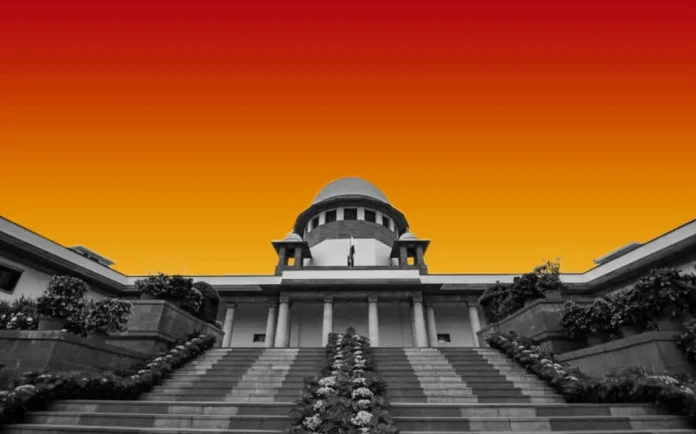The Supreme Court has directed the Union government to take immediate steps for the rehabilitation of victims of sex trafficking, as well as to safeguard their rights and dignity.
Expressing concern over the ‘highly-sensitive’ and ‘important’ issue, the Bench of Justice JB Pardiwala and Justice Pankaj Mithal directed the Union government to file a fresh affidavit, detailing the steps either taken or to be taken in future by the Union government, to address the legislative vacuum as well as the phenomenal increase in cyber-enabled sex trafficking.
Additional Solicitor General Aishwarya Bhati, representing the Centre,
The Apex Court, while highlighting the devastating impact of human and sex trafficking on vulnerable sections of society, called for a comprehensive rehabilitation framework for the victims of sex trafficking.
It said that such crimes dehumanised the victim, violating the victim’s right to life, freedom and personal security. Vulnerable sections of society, especially women and children, were disproportionately affected in such crimes, noted the Bench.
It observed that this stark reality underscored the need for enhanced protection and support mechanisms to safeguard the rights and dignity of these vulnerable groups.
The Bench passed the order on an application seeking compliance with a 2015 decision that noted the Centre’s stance on the formation of the Organised Crime Investigating Agency (OCIA) and strengthening of the Victim Protection Protocol for victims of sex trafficking.
In 2015, the top court of the country had urged the Central government to consider enacting a comprehensive framework for the rehabilitation of such victims.
On the formation of OCIA, the Centre had apprised the Court by way of an affidavit that instead of such formation, amendments have been made to the National Investigation Agency (NIA) Act, 2008 to deal with the issue.
The Bench cited concerns that amendments to the NIA Act may not adequately address victim protection. At best, such amendments could only prosecute the sex trafficking offenders, but not protect the victims.
While it was important to prevent human trafficking and prosecute & punish the offenders of such heinous crimes, it was equally important that legislative mechanisms focused on providing care, protection and rehabilitation to the victims of trafficking.
This must be done by creating a larger legal, economic and social environment that secured the well-being of the victims. It is the need of the hour to adopt a human rights and rehabilitative approach to such crimes, the Bench had observed.
The Apex Court was apprised that a legislation concerning the said issue was tabled, but could not see light of the day in Parliament.
The Bench directed the Centre to file a fresh affidavit and listed the matter for further hearing on December 10.
The petitioner, a non-profit organisation called Prajwala, was represented by Senior Advocate Aparna Bhat, along with Advocates Rajkumari Banju and Karishma Maria.
Additional Solicitor General Aishwarya Bhati appeared for the Union of India.


